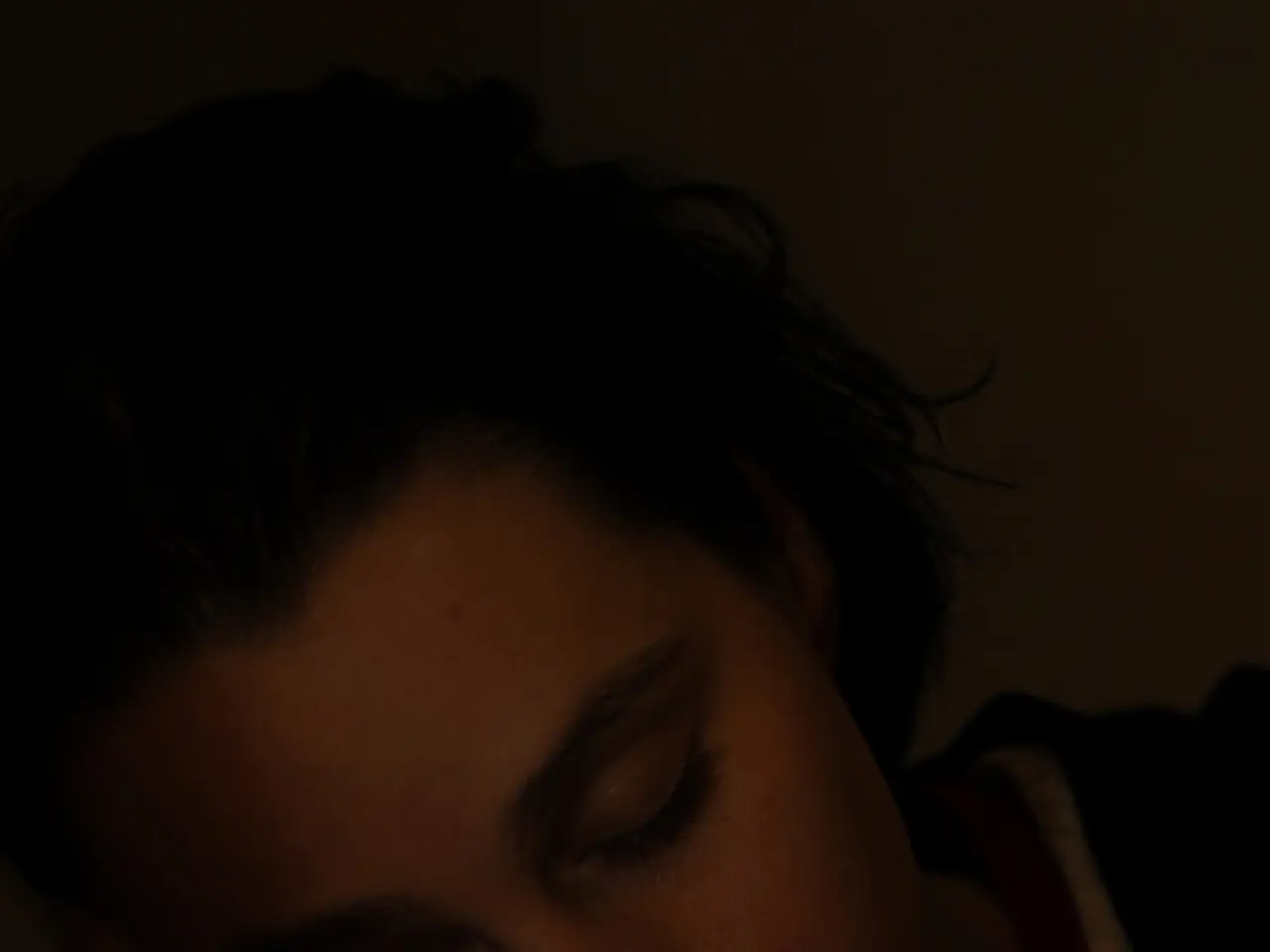The Impact of Marijuana on Sleep Patterns Unveiled
In recent years, there has been a growing interest in the potential benefits of cannabis for sleep issues. However, the relationship between cannabis and sleep is complex and not fully understood.
Researchers have observed a modest increase in slow-wave sleep, the deepest and most restorative stage, in sleep lab studies [1]. Some users report that cannabis helps them fall asleep faster and stay asleep longer, especially during the initial days or weeks of use [4]. However, long-term use often leads to less overall sleep, reduced time in deep sleep, longer time to fall asleep, and frequent awakenings, which can impair sleep quality despite short-term benefits like faster sleep onset [1][4]. Abrupt cessation can cause sleep disturbances, including strange dreams and difficulty returning to sleep [1][5].
Mental health considerations are critical. THC, the psychoactive component in cannabis, may provide temporary mood improvement but can worsen symptoms in vulnerable individuals with conditions such as schizophrenia or bipolar disorder, potentially provoking psychosis, paranoia, and hallucinations [2]. Cannabis use can also lead to dependency and may exacerbate some symptoms of depression or other disorders. The effects on other conditions like OCD and personality disorders are less clear due to limited research [2].
Strain and cannabinoid composition matter significantly. Clinical trials demonstrate that combined THC and CBD formulas can improve insomnia symptoms, but efficacy depends on the specific cannabinoid profile, dosage, and delivery method [3][5]. High CBD-to-THC ratios may alter effects and influence tolerance development. Tolerance to THC’s effects, such as sleep architecture changes, can develop with frequent use, reducing effectiveness and increasing the risk of side effects [5].
Frequency of use raises concerns about tolerance, dependence, and withdrawal effects impacting sleep quality and mental health in the long term [1][5]. Heavy and sustained use is associated with potential brain structural changes and respiratory risks if smoked [1].
Personalized cannabinoid prescriptions and clinical monitoring are essential. Individual differences in response necessitate tailored approaches, screening for contraindications like psychosis history and substance use disorders, and careful dose titration to balance sleep benefits against risks [3]. Current evidence emphasizes the need for cautious, monitored use given incomplete data on long-term safety.
In summary, while medical cannabis holds promise for improving sleep in some individuals, its long-term use requires individualized treatment considering mental health, strain composition, and use patterns to minimize risks and optimize benefits [1][2][3][5]. More large-scale, controlled studies are needed to fully understand these long-term effects.
It's important to remember that the impact of cannabis on sleep doesn't exist in a vacuum; it changes depending on the user's mental health. A better approach might be to understand one's own sleep patterns and how cannabis fits into that story, rather than asking if it helps or hurts sleep. The current wave of interest in cannabis and sleep is forcing the medical community to pay attention, and the conversation is getting louder.
Pharmaceutical-grade cannabis products like Marinol, Nabilone, and others have been prescribed explicitly for sleep disturbances. Researchers are exploring how different cannabinoid profiles affect specific sleep disorders, the potential benefits of CBD-only products, interactions with circadian rhythms, and personalized cannabinoid prescriptions.
In the end, the answers about cannabis and sleep will come from paying close attention to one's own experience and being willing to change course when the results stop serving one well. Over 65% of people who return to cannabis after quitting cite poor sleep as the main reason [6]. The long-term use of cannabis for sleep involves complex effects influenced by mental health status, cannabis strain, frequency of use, and personalized cannabinoid prescriptions.
[1] https://www.ncbi.nlm.nih.gov/pmc/articles/PMC5732884/ [2] https://www.ncbi.nlm.nih.gov/pmc/articles/PMC3165946/ [3] https://www.ncbi.nlm.nih.gov/pmc/articles/PMC4804148/ [4] https://www.ncbi.nlm.nih.gov/pmc/articles/PMC5732884/ [5] https://www.ncbi.nlm.nih.gov/pmc/articles/PMC7136413/ [6] https://www.ncbi.nlm.nih.gov/pmc/articles/PMC4625148/
Science and health-and-wellness are intertwined when discussing the relationship between cannabis and sleep. For instance, researchers have observed that cannabis affects sleep architecture, but its long-term effects on sleep quality can be complex, affecting mental health as well.
In the realm of health-and-wellness, personalized cannabinoid prescriptions and clinical monitoring are crucial in understanding and optimizing the benefits of cannabis for sleep, especially considering factors like mental health, strain composition, and use patterns.




